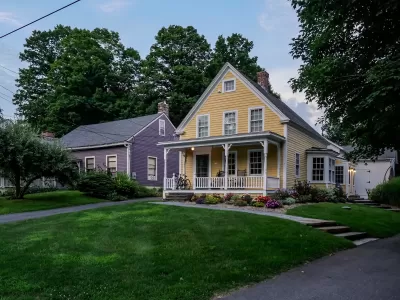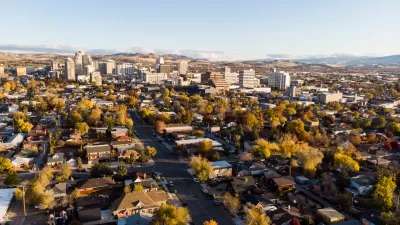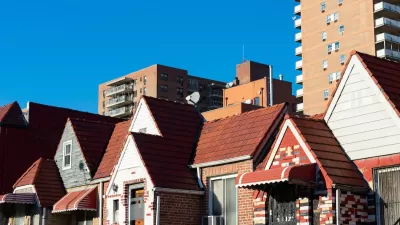Cities and towns have until February to adjust their zoning codes to reflect more permissive rules for accessory dwelling units.

A new Massachusetts state law will require cities and towns to revise their zoning laws when it comes to accessory dwelling units (ADUs), reports Scott Merzbach in the Amherst Bulletin.
The state law, the Affordable Homes Act, preempts some local requirements, such as Amherst’s owner-occupancy requirement and prohibitions on free-standing units. However, towns “may add designs and standards, architectural character and other criteria, within reason,” according to Amherst Senior Planner Nate Malloy. In Northampton, “second units of any size are already allowed in Northampton’s residential districts, so long as they meet minimum design criteria, setbacks, open space, heights and other dimensional criteria.”
Some small and rural communities with septic systems will likely see slower change, as a state law limits the number of bedrooms by lot size. According to William Dwyer, a Planning Board Clerk in the small town of Hadley, “revisions to zoning rules in Hadley will likely set reasonable limits, such as maintaining rear and side setback requirements, the need for the dwelling to be on a foundation and for water and septic or sewer connections to the main home.”
FULL STORY: State’s new housing law to trigger zoning reset for accessory dwellings

Trump Administration Could Effectively End Housing Voucher Program
Federal officials are eyeing major cuts to the Section 8 program that helps millions of low-income households pay rent.

Planetizen Federal Action Tracker
A weekly monitor of how Trump’s orders and actions are impacting planners and planning in America.

Ken Jennings Launches Transit Web Series
The Jeopardy champ wants you to ride public transit.

California Invests Additional $5M in Electric School Buses
The state wants to electrify all of its school bus fleets by 2035.

Austin Launches $2M Homelessness Prevention Fund
A new grant program from the city’s Homeless Strategy Office will fund rental assistance and supportive services.

Alabama School Forestry Initiative Brings Trees to Schoolyards
Trees can improve physical and mental health for students and commnity members.
Urban Design for Planners 1: Software Tools
This six-course series explores essential urban design concepts using open source software and equips planners with the tools they need to participate fully in the urban design process.
Planning for Universal Design
Learn the tools for implementing Universal Design in planning regulations.
Ada County Highway District
Clanton & Associates, Inc.
Jessamine County Fiscal Court
Institute for Housing and Urban Development Studies (IHS)
City of Grandview
Harvard GSD Executive Education
Toledo-Lucas County Plan Commissions
Salt Lake City
NYU Wagner Graduate School of Public Service





























